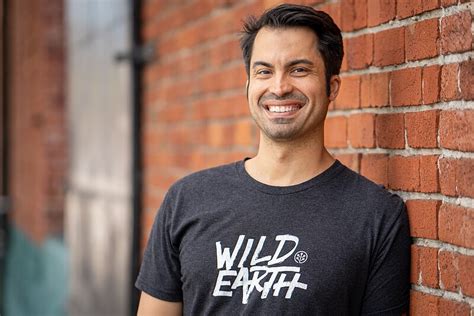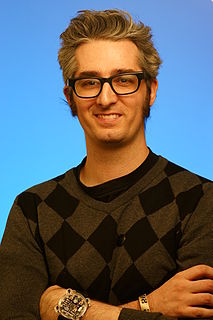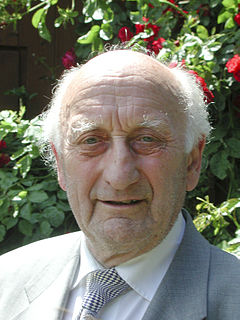A Quote by Ryan Bethencourt
Simple genome engineering of bacteria and yeast is just the beginning of the rise of the true biohackers. This is a community of several thousand people, with skill sets ranging from self-taught software hackers to biology postdocs who are impatient with the structure of traditional institutional lab work.
Related Quotes
All great contemporary artists, schooled or not, are essentially self-taught and are de-skilling like crazy. I don't look for skill in art... skill has nothing to do with technical proficiency... I'm interested in people who rethink skill, who redefine or reimagine it: an engineer, say, who builds rockets from rocks.
Jobs offshoring began with manufacturing, but the rise of the high-speed Internet made it possible to move offshore tradable professional skills, such as software engineering, information technology, various forms of engineering, architecture, accounting, and even the medical reading of MRIs and CT-Scans.
A hacker is someone who enjoys playful cleverness—not necessarily with computers. The programmers in the old MIT free software community of the 60s and 70s referred to themselves as hackers. Around 1980, journalists who discovered the hacker community mistakenly took the term to mean “security breaker.”
There is no one "root of all evil" in software development. Design is hard in many ways. People tend to underestimate the intellectual and practical difficulties involved in building a significant system involving software. It is not and will not be reduced to a simple mechanical "assembly line" process. Creativity, engineering principles, and evolutionary change are needed to create a satisfactory large system.
Software substitution, whether it's for drivers or waiters or nurses ... it's progressing. ... Technology over time will reduce demand for jobs, particularly at the lower end of skill set. ... 20 years from now, labor demand for lots of skill sets will be substantially lower. I don’t think people have that in their mental model.
I think the term "interbeing" has cropped up in a lot of places. It's in the atmosphere, because it's just so true, and the time for that truth to be revealed to mass society is here. It's like in those French bakeries where they don't need to add yeast to the dough, because the yeast is so ambient in the air that the dough gets quickened whether or not you add yeast to it. Many people, even without doing a whole lot of study and reading, are coming to the same kinds of conclusions and perceptions about the world as I am.
In a small lab, if you make a mistake, you can go in the next day and fix it. But here, when you are committed to spending a hundred thousand or a million dollars, you can't fix it later. You need to have a system of checks and balances internally. In particle physics, that's just part of the structure.
We have 200 trillion cells, and the outcome of each of them is almost 100 percent genetically determined. And that's what our experiment with the first synthetic genome proves, at least in the case of really simple bacteria. It's the interactions of all those separate genetic units that give us the physiology that we see.




































